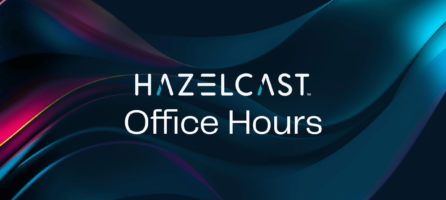Enhanced Hazelcast Experience on Kubernetes: Hazelcast Platform Operator 5.0 is Released
Author’s note: This blog was co-written with Nandan Kidambi.
Today, we are announcing the first stable release of Hazelcast Platform Operator – an open-source project to deploy Hazelcast and Management Center on Kubernetes easily.
The Hazelcast Platform Operator empowers human operators to have zero friction experience to fully automate everyday management tasks such as configuring, creating, scaling, and recovering Hazelcast clusters on Kubernetes and OpenShift. The Hazelcast Platform Operator makes it simpler to work with Hazelcast clusters by taking care of manual deployment and application life-cycle management.
Deploying and managing resources at Kubernetes requires product-specific best practices in the cloud-native world. Kubernetes operators are great tools to achieve these best practices. Platform operator provides this functionality for Hazelcast users, provisioning Hazelcast clusters at Kubernetes without dealing with configuration files. Furthermore, for users new to Hazelcast, the Platform Operator abstracts the Hazelcast-specific knowledge so that users can focus on their applications.
With the Hazelcast Platform Operator launch, we will no longer be maintaining our existing Helm-based operators and the project is deprecated. We already deprecated them at OperatorHub.
Hazelcast Platform Operator 5.0 supports the following features:
- Custom resource for Hazelcast Platform (Open Source & Enterprise) and Management Center
- Observe status of Hazelcast and Management Center clusters
- Scale-up and down Hazelcast clusters
- Expose Hazelcast cluster to external clients
Make sure to visit the release notes for more detailed information. Check out more details on how to get started in the project repository here.
We would love to hear from you. For discussions and questions, you can reach us directly from Hazelcast Community Slack. If you want to contribute to the project via sending pull requests or reporting issues, you can start by reading our contributing guideline.
For more information, please visit:


